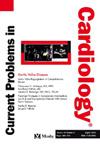The effect of 0.5 mg dose of colchicine on clinical outcomes in patients with acute myocardial infarction: An updated meta-analysis of randomized controlled trials
IF 3.3
3区 医学
Q2 CARDIAC & CARDIOVASCULAR SYSTEMS
引用次数: 0
Abstract
Background
Inflammation plays a critical role in the progression of atherosclerosis, and the anti-inflammatory effects on clinical outcomes of patients with acute myocardial infarction (AMI) are still uncertain.
Objectives
We aimed to study the effects of a 0.5 mg dose of colchicine on clinical outcomes following AMI.
Methods
We systematically searched PubMed, Scopus, Web of Science, and Cochrane Central from inception to January 2025 for randomized controlled trials (RCTs) assessing 0.5 mg colchicine in AMI patients. The primary outcome was the incidence of major adverse cardiovascular events (MACE). Secondary outcomes included individual MACE components, cardiovascular (CV) and non-CV mortality, atrial fibrillation (AF), hospital readmission, and gastrointestinal (GIT) adverse events, including diarrhea.
Results
Ten RCTs involving 13,623 patients with a median follow-up of 6 months (range 5 days–36 months) were included. Low-dose colchicine showed a non-significant trend toward reducing MACE versus placebo (RR = 0.90, 95% CI: 0.80–1.01, p = 0.07; I² = 0%). Hospital readmission was significantly reduced by 49% (OR = 0.51, 95% CI: 0.26–0.98, p = 0.04; number needed to treat [NNT] = 25). Colchicine increased the risk of diarrhea (RR = 1.58, 95% CI: 1.06–2.36, p = 0.03; I² = 71%; number needed to harm [NNH] = 50) but showed no significant differences in all-cause mortality, CV mortality, myocardial infarction, stroke, or other GIT events.
Conclusion
Low-dose colchicine had a lower hospital readmission rate, but with higher rates of diarrhea compared to placebo. Long-term assessment is indeed to validate the current findings.
0.5 mg秋水仙碱对急性心肌梗死患者临床结局的影响:一项随机对照试验的最新荟萃分析
背景:炎症在动脉粥样硬化的进展中起着至关重要的作用,抗炎对急性心肌梗死(AMI)患者临床结局的影响尚不确定。目的:研究0.5 mg秋水仙碱对急性心肌梗死后临床预后的影响。方法:我们系统地检索PubMed、Scopus、Web of Science和Cochrane Central从成立到2025年1月的随机对照试验(rct),评估0.5 mg秋水仙碱对AMI患者的影响。主要终点是主要不良心血管事件(MACE)的发生率。次要结局包括个体MACE成分、心血管(CV)和非CV死亡率、心房颤动(AF)、再入院和胃肠道(GIT)不良事件,包括腹泻。结果:纳入10项随机对照试验,涉及13,623例患者,中位随访时间为6个月(5天-36个月)。与安慰剂相比,低剂量秋水仙碱降低MACE的趋势不显著(RR = 0.90,95% CI: 0.80-1.01, p = 0.07;I² = 0%)。再入院率显著降低49% (OR = 0.51,95% CI: 0.26-0.98, p = 0.04;所需治疗人数[NNT] = 25)。秋水仙碱增加了腹泻的风险(RR = 1.58,95% CI: 1.06-2.36, p = 0.03;I² = 71%;所需伤害数[NNH] = 50),但在全因死亡率、CV死亡率、心肌梗死、卒中或其他GIT事件方面无显著差异。结论:与安慰剂相比,低剂量秋水仙碱的再入院率较低,但腹泻率较高。长期评估确实验证了目前的发现。
本文章由计算机程序翻译,如有差异,请以英文原文为准。
求助全文
约1分钟内获得全文
求助全文
来源期刊

Current Problems in Cardiology
医学-心血管系统
CiteScore
4.80
自引率
2.40%
发文量
392
审稿时长
6 days
期刊介绍:
Under the editorial leadership of noted cardiologist Dr. Hector O. Ventura, Current Problems in Cardiology provides focused, comprehensive coverage of important clinical topics in cardiology. Each monthly issues, addresses a selected clinical problem or condition, including pathophysiology, invasive and noninvasive diagnosis, drug therapy, surgical management, and rehabilitation; or explores the clinical applications of a diagnostic modality or a particular category of drugs. Critical commentary from the distinguished editorial board accompanies each monograph, providing readers with additional insights. An extensive bibliography in each issue saves hours of library research.
 求助内容:
求助内容: 应助结果提醒方式:
应助结果提醒方式:


